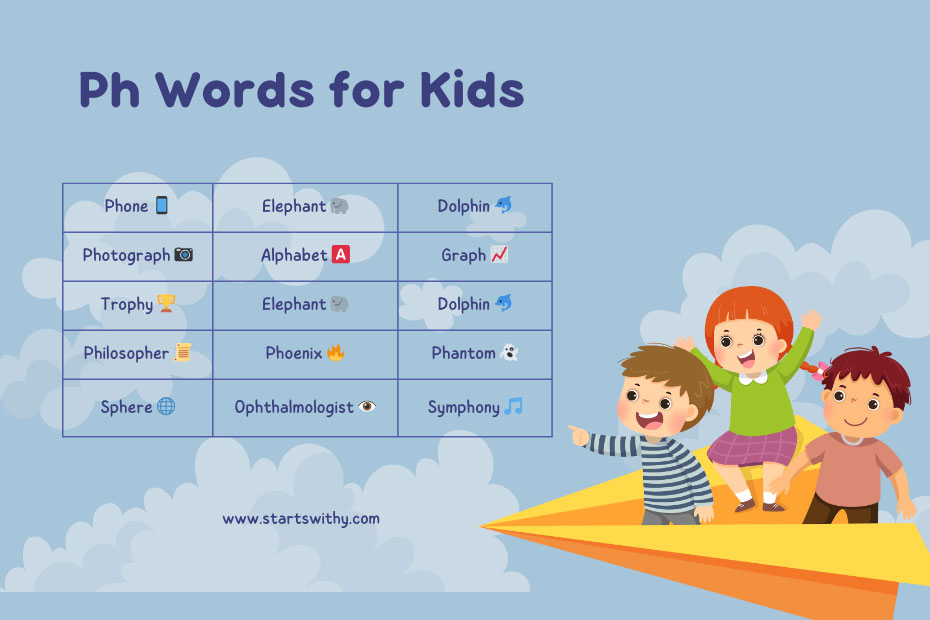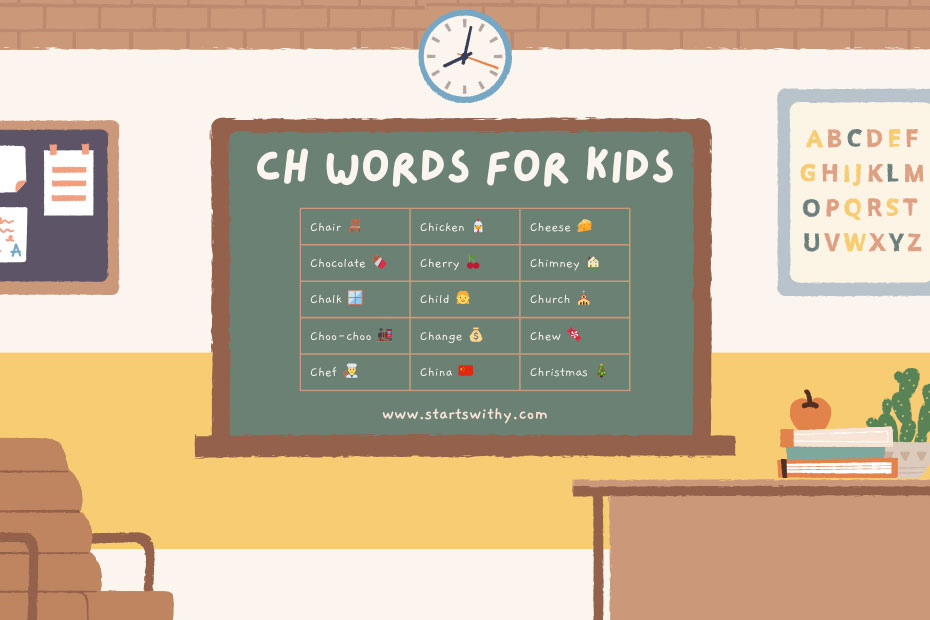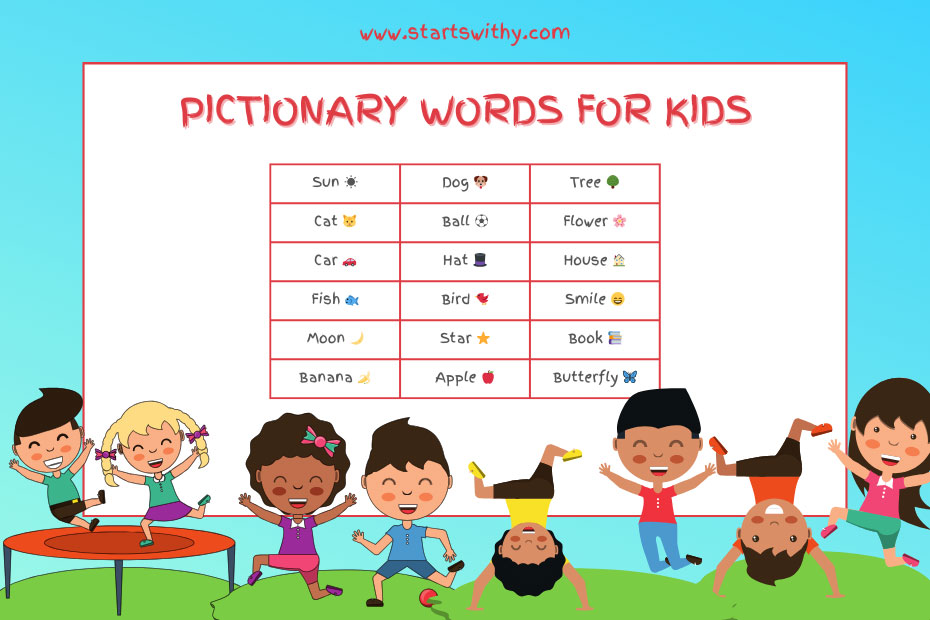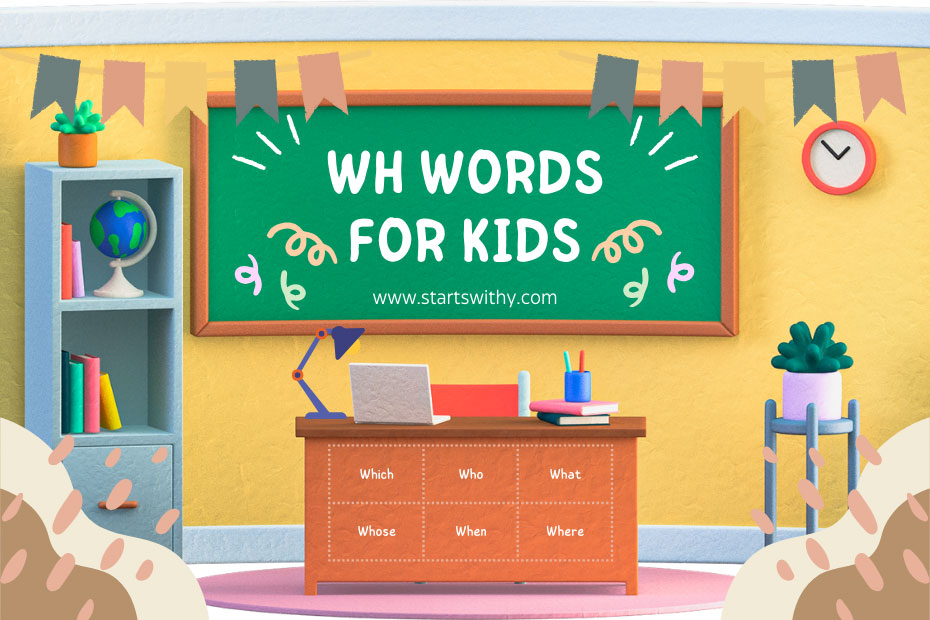Hey there! Are you ready to dive into the world of words that start with “ph”? Well, you’re in the right place! In this article, I’ll be sharing some exciting and educational “ph words” that are perfect for kids.
Learning new words can be a lot of fun, especially when they have interesting sounds like “ph”. Not only will these words expand your child’s vocabulary, but they will also help improve their phonics skills. So, get ready to explore words like “phone”, “photo”, and “elephant” – just to name a few!
What Are PH Words?
When it comes to building a strong vocabulary, it’s important for kids to learn words with interesting sounds. That’s where “ph words” come in! These unique words start with the letter combination “ph” and can be quite beneficial for improving both vocabulary and phonics skills.
So what exactly are “ph words”? Well, “ph” is a digraph—a combination of two letters that represents a single sound. In English, the “ph” sound is usually pronounced like an “f”. It may sound a bit tricky, but learning “ph words” can help children with their reading and pronunciation.
Here are a few examples of common “ph words” that kids might be familiar with:
- Phone: This is a device we use to make calls or send messages to others.
- Photo: It’s a shortened version of “photograph”, which is a picture taken with a camera.
- Elephant: One of the largest land animals, known for its long trunk and big ears.
These words not only sound interesting, but they also have a significant role in expanding a child’s vocabulary. By introducing “ph words” to young learners, we can give them the opportunity to explore new sounds and meanings.
Phonics Fun with Ph Words for Kids!
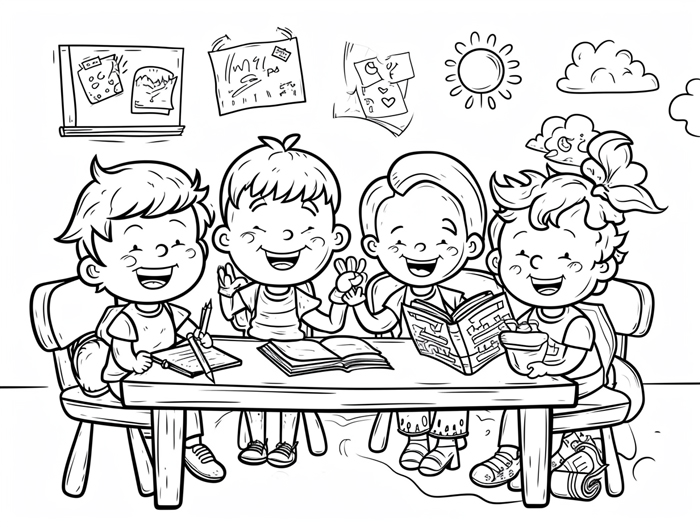
| Word | Meaning | Sentence |
|---|---|---|
| Phone | A device used to make calls. | I can call grandma on the phone. |
| Photograph | A picture taken with a camera. | Let’s take a photograph of the beach. |
| Phonics | The study of sounds in words. | Learning phonics helps me read new words. |
| Phase | A period or stage of something. | We’re in the planning phase of our treehouse. |
| Phantom | A ghost or other mysterious creature. | I saw a phantom in the fog! (Just pretend!) |
| Phenomenon | An unusual or interesting event. | The rainbow was a beautiful phenomenon. |
| Phrase | A group of words that make up a unit of meaning. | “Go team!” is a fun cheering phrase. |
| Pharaoh | An ancient Egyptian ruler. | The Pharaoh built the Great Pyramids. |
| Philharmonic | An orchestra that performs classical music. | The Philharmonic played a beautiful symphony. |
| Philosophy | A system of beliefs about life and the world. | My philosophy is to be kind to others. |
| Photographers | People who take photographs. | Photographers captured the excitement of the race. |
| Photosynthesis | The process plants use to make food from sunlight. | The leaves use photosynthesis to grow. |
| Phosphorous | A mineral found in bones and teeth. | I eat healthy foods to get enough phosphorus. |
| Physique | The physical build or shape of a person’s body. | The dancer had an amazing physique. |
| Philanthropist | A person who donates money or time to help others. | Bill Gates is a famous philanthropist. |
Examples of PH words
| Word | Meaning | Sentence |
|---|---|---|
| Phone | A device for talking | I talk on the phone. |
| Photo | A picture | I see a photo. |
| Phrase | A group of words | She said a nice phrase. |
| Phantom | A ghostly figure | A phantom appeared! |
| Pharmacy | A place for medicines | We went to the pharmacy. |
| Elephant | A large animal | The elephant is big. |
| Dolphin | A sea mammal | A dolphin swims fast. |
| Graph | A visual data representation | We drew a graph. |
| Alphabet | A set of letters | Learn the alphabet. |
| Sapphire | A blue gemstone | A sapphire sparkled. |
Phonics
One of the benefits of learning “ph words” is that they can help improve children’s phonics skills. Phonics is a method of teaching reading and writing by focusing on the sounds associated with letters and letter combinations. It helps children understand the relationship between letters and sounds, which is essential for reading and spelling.
Learning “ph words” can be a fun way for kids to practice phonics. Some common “ph words” that can help children strengthen their phonics skills include:
- Phone
- Photo
- Elephant
- Dolphin
Elephant
Another example of a “ph word” is “elephant”. Elephants are fascinating creatures that children often find interesting. By introducing the word “elephant” as a part of learning “ph words”, kids can not only expand their vocabulary but also learn about these gentle giants.
Dolphin
“Dolphin” is another “ph word” that can capture children’s imagination. Dolphins are highly intelligent marine mammals known for their playful nature. By including the word “dolphin” in the “ph words” vocabulary, kids can develop their understanding of marine life and add to their growing list of words starting with “ph”.
Learning these “ph words” not only enhances children’s vocabulary but also helps them recognize and familiarize themselves with the “ph” letter combination. These words can serve as building blocks for their linguistic development and help them become more confident readers and spellers.
Words That End With Ph For Kids
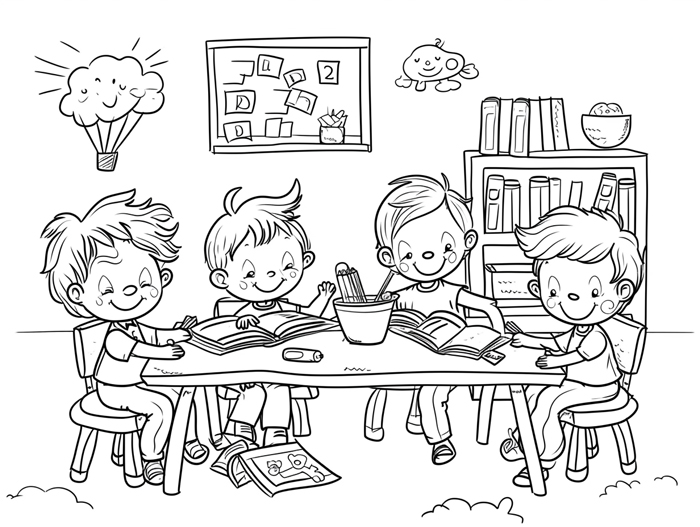
| Word | Meaning | Fun Sentence for Kids |
|---|---|---|
| alphabetgraph | a chart that shows the letters of the alphabet | “I learned the alphabet using an alphabetgraph.” |
| autograph | a signature of a famous person | “I got an autograph from my favorite athlete.” |
| dolphinograph | a picture or drawing of a dolphin | “I drew a dolphinograph in art class.” |
| elephantograph | a picture or drawing of an elephant | “I colored an elephantograph with my crayons.” |
| giraffeph | a toy giraffe | “I love playing with my giraffeph.” |
| graph | a diagram that shows the relationship between two or more things | “I made a graph to show how many apples I ate each day.” |
| phonograph | an old-fashioned record player | “My grandparents have a phonograph in their living room.” |
| photograph | a picture taken with a camera | “I took a photograph of my family at the beach.” |
| telegraph | an old-fashioned machine used to send messages over long distances | “I learned about the telegraph in history class.” |
Why Are PH Words Important for Kids?
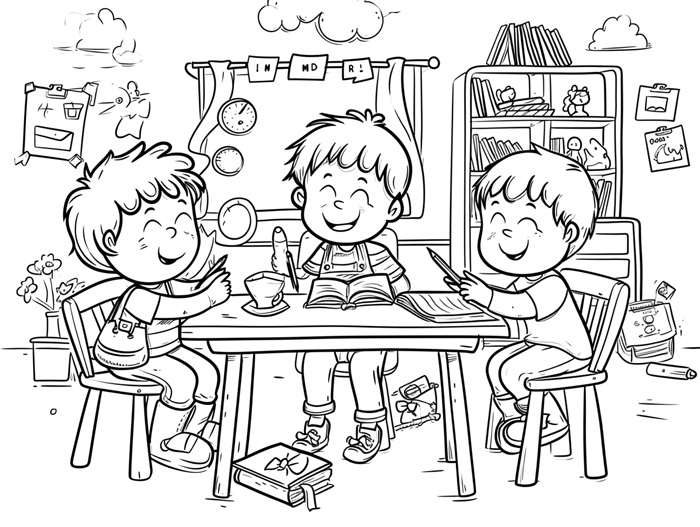
Improves Phonics Skills
Learning PH words can greatly enhance a child’s phonics skills. Phonics is the method of teaching reading by breaking words down into their individual sounds or phonemes. By familiarizing themselves with PH words, children learn the unique sound that the “ph” letter combination makes. This helps them recognize and decode words more efficiently, leading to improved reading fluency and comprehension.
Expands Vocabulary
Exposing children to PH words helps expand their vocabulary. There are numerous PH words that are commonly used in everyday language, such as “phone,” “photo,” “elephant,” and “dolphin.” By learning these words, children can develop a deeper understanding of different concepts and objects. This not only broadens their knowledge base, but also improves their ability to express themselves and communicate effectively.
Enhances Reading and Writing Abilities
Acquiring a strong foundation in PH words can have a significant impact on a child’s reading and writing abilities. By understanding the “ph” sound and recognizing PH words, children become more confident readers and spellers. Their ability to decode and spell words accurately improves, allowing them to tackle more complex texts with ease. Additionally, being able to write and use PH words correctly enhances their overall writing skills, making their compositions more engaging and sophisticated.
How to Teach PH Words to Kids?
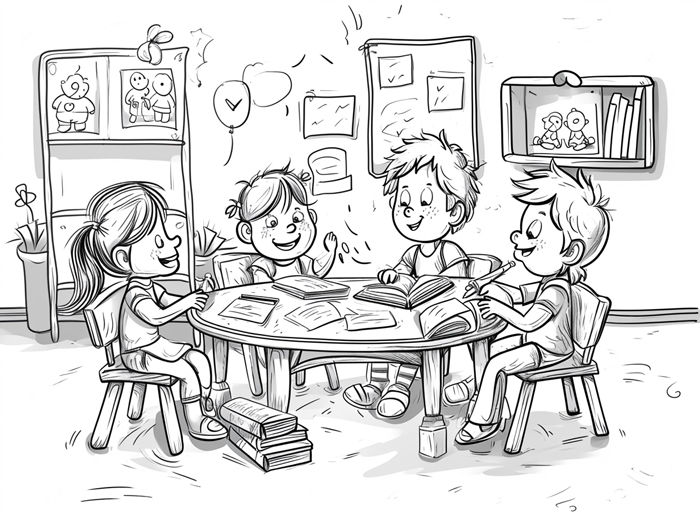
Utilize Phonics Games and Activities
When teaching PH words to kids, I find that utilizing phonics games and activities is an engaging and effective approach. These interactive learning tools help children develop phonemic awareness and recognize the unique sound that the “ph” letter combination makes. Here are some fun phonics games and activities to try:
- Phonics Treasure Hunt: Hide objects around the house or classroom that have “ph” words on them. Provide children with a list of words to search for and let them hunt for the hidden treasures while saying the words aloud.
- Phonics Puzzles: Create puzzles with “ph” words by writing each word on one puzzle piece and cutting it into two halves. Challenge children to match the word and its corresponding “ph” picture by piecing the puzzle together.
- Phonics Sorting: Prepare flashcards with various words, some containing “ph” and others not. Have children sort the cards into “ph words” and “non-ph words” piles to reinforce their understanding of the letter combination.
Read Books with PH Words
One of the most effective ways to introduce and reinforce PH words is through reading. Incorporating books that prominently feature “ph” words not only exposes children to these words but also helps them contextualize their usage and meaning. Here are some tips for incorporating PH word books into your teaching:
- Choose Age-Appropriate Books: Select books that are suitable for your child’s age and reading level. Look for picture books, early readers, or chapter books that incorporate PH words in a natural and engaging way.
- Highlight and Discuss PH Words: When reading a book with PH words, encourage your child to identify and emphasize the “ph” sound. Take the opportunity to discuss the meanings of these words, helping your child develop a deeper understanding of their usage.
- Create Word Lists: As you come across PH words in the book, write them down on a separate sheet of paper. Encourage your child to make connections between the words and reinforce their recognition by reviewing the word list together.
Practice Writing PH Words
To further reinforce their understanding of PH words, it’s essential for kids to practice writing them. The act of physically writing the words helps children familiarize themselves with the spelling and reinforces the connection between the “ph” letter combination and its unique sound. Here are some practical ways to incorporate writing practice:
- Trace and Write Worksheets: Find or create worksheets that allow children to trace and write PH words. This helps them develop proper letter formation and reinforces visual recognition of the word.
- Word Building: Provide children with letter tiles or magnetic letters and have them manipulate the letters to form “ph” words. This hands-on activity helps reinforce the spelling and recognition of these words.
- Writing Prompts: Give children writing prompts that require them to use PH words in their sentences. This encourages them to apply their knowledge and practice using these words in a meaningful context.
Remember, when teaching PH words to kids, it’s important to make learning fun and engaging. By using phonics games and activities, reading books with PH words, and providing opportunities for writing practice, children can develop a strong foundation in PH words and enhance their phonics skills, vocabulary, and overall linguistic development.
Conclusion
Teaching “ph words” to kids can be an exciting and rewarding experience. By incorporating phonics games and activities, reading books that feature “ph words,” and encouraging writing practice, children can develop a strong foundation in phonics skills and vocabulary.
Engaging children in fun and interactive learning experiences is crucial for their linguistic development. By making learning enjoyable, we can help them stay motivated and eager to explore the world of “ph words.”
Remember, the key is to create an environment that fosters curiosity and encourages children to actively participate in their learning journey. By implementing these strategies, we can empower children to become confident readers and communicators.
So, let’s embark on this adventure together and watch as our young learners discover the wonders of “ph words” and unlock their full linguistic potential. Happy teaching!
